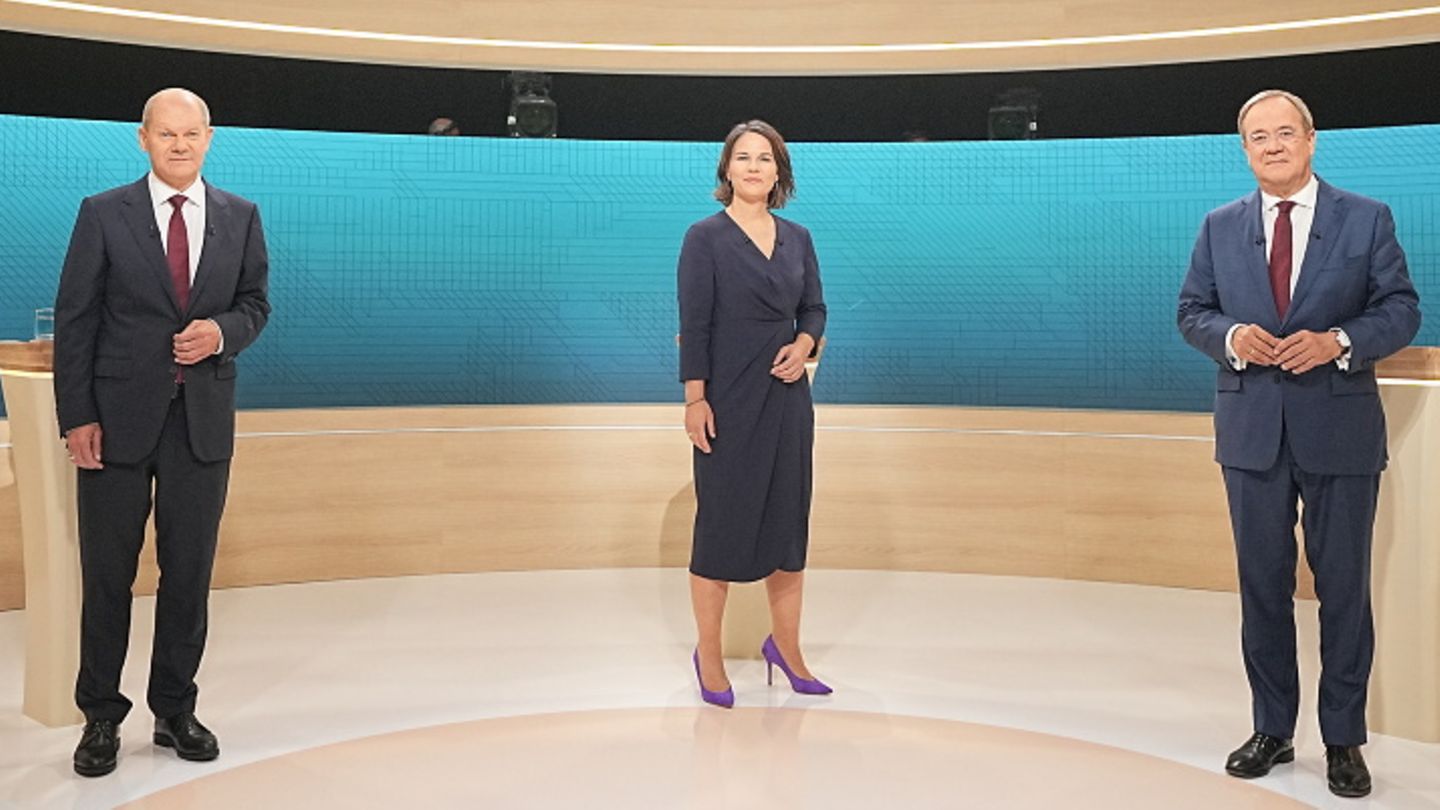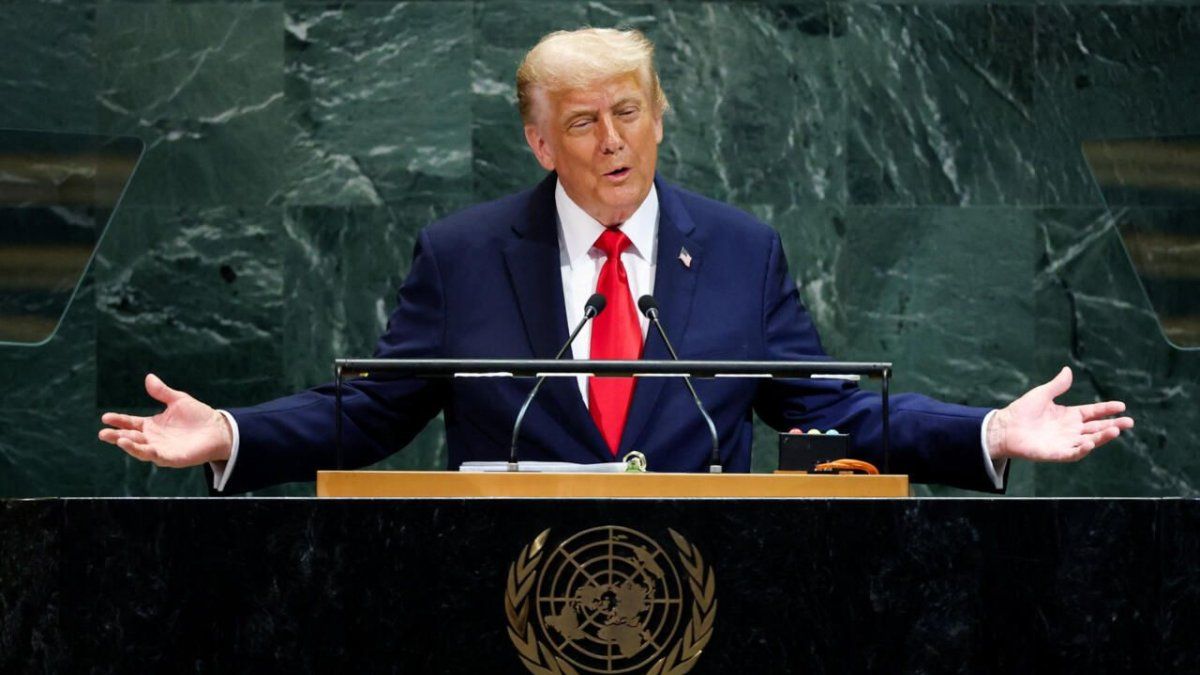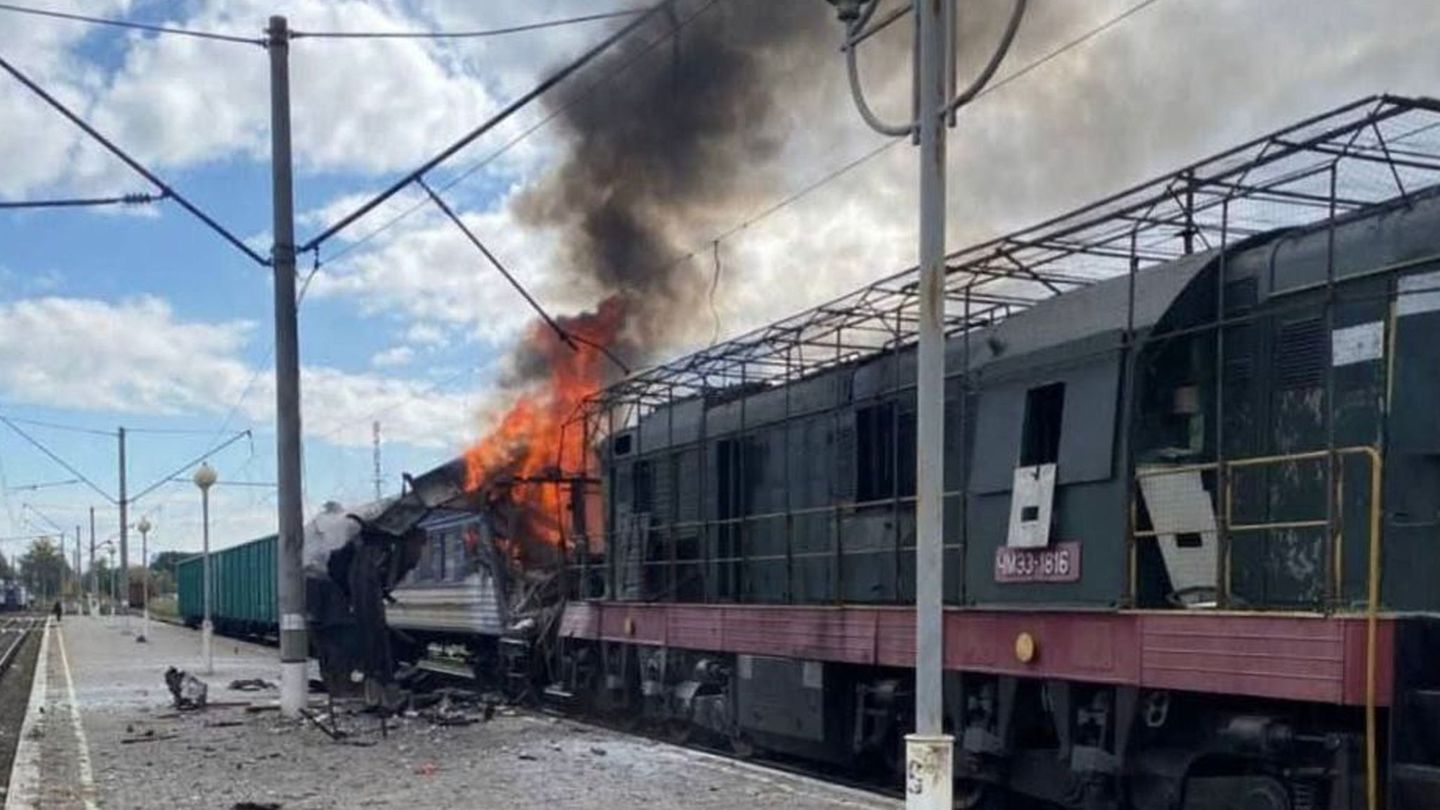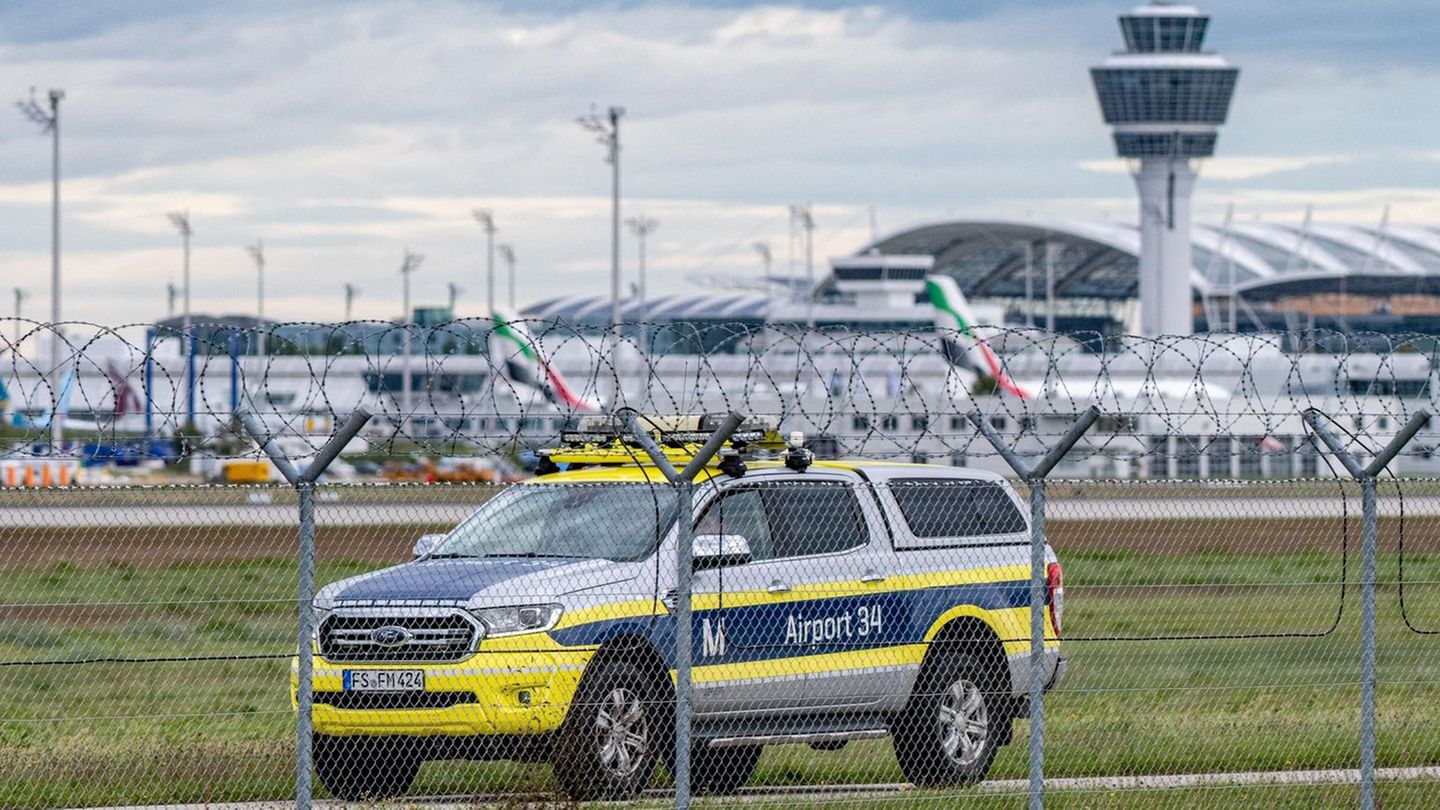The election campaign is entering the hot phase. In the second TV trio, the candidates for chancellor from the Union, the Greens and the SPD had to answer questions from ZDF presenter Maybrit Illner and ARD editor-in-chief Oliver Köhr. The most important points of contention at a glance.
Two weeks before the federal election, the candidates for chancellor from the Union, SPD and Greens had a partly sharp exchange of blows in another television debate. In view of the investigations against the customs central office for money laundering, Armin Laschet (Union) and Annalena Baerbock (Greens) tried to put the SPD applicant Olaf Scholz under pressure on Sunday evening. It was also about possible government alliances, the fight against the climate crisis and the lessons from the corona pandemic.
Laschet attacks Scholz to search the finance department
Scholz emphasized that the raid was not about allegations against the ministry. Laschet called it “a miracle” that Scholz could “display such fine talk”. The searches in the Ministry of Finance and the Ministry of Justice on Thursday concerned an investigation into the suspicion of fraud in the office against those responsible for the Financial Intelligence Unit (FIU), which is located at customs, for combating money laundering. Customs are subordinate to the Ministry of Finance.
According to the Osnabrück public prosecutor’s office, the aim of the searches was “to further clarify the suspected criminal offense and, in particular, individual responsibilities”. Both ministries emphasized that there was no suspicion directed against employees of the respective department. Scholz himself was irritated – if the investigators had questions for the finance department, they “could have asked them in writing”.
Laschet therefore accused him on Sunday of having spoken “derogatory” about the judiciary. That was “inappropriate”. He also drew parallels to the case of the bankruptcy of the payment service provider Wirecard, which had revealed problems with financial supervision, as well as to the tax fraud known as Cum-Ex.
Green Chancellor candidate Annalena Baerbock emphasized that Germany had a big problem with money laundering and tax evasion, which had already started “with the CDU”. As a result, the state lost enormous sums of money every year. The Greens therefore demanded, among other things, a cash limit for transactions such as buying real estate, said the party leader.
Controversy over climate protection
On the subject of climate protection, Laschet and Scholz accused each other of blocking important issues. Scholz emphasized that the Union had long denied that more electricity was needed for the climate-friendly restructuring of the economy. Laschet accused the SPD on Sunday evening in the second major TV election debate on ARD and ZDF of preventing accelerations in planning and approval procedures.
Baerbock made it clear that with the current pace of the black-red coalition, climate targets would be clearly missed. The Union and the SPD have always blamed each other. She called the fight against climate change a major effort. Baerbock affirmed that Germany must get out of coal earlier, well before the year 2038 – that has been planned so far.
In response to a question about rising fuel prices, Scholz said that a moderate approach should be taken with CO2 pricing in traffic. Nobody buys a new car the next day because of rising fuel prices. The income from the CO2 price would have to be returned to the citizens by abolishing the EEG surcharge to promote green electricity.
Broad reluctance to issue a coalition
Despite persistent questions, all three candidates for Chancellor have left possible government alliances open after the election. The CDU chairman Laschet did not generally rule out a junior role for the Union in an SPD-led federal government. “Democrats have to talk to each other after the election.” At the same time he emphasized: “We are fighting for first place.” Laschet avoided the question altogether. One is currently not in the formation of a government, but “in promoting the right way for our country”.
SPD chancellor candidate Scholz once again did not make a definitive decision whether he would rule out a coalition with the left. But he emphasized: “Anyone who wants to govern in Germany must have clear positions, they must commit to transatlantic cooperation, they must clearly state that NATO is indispensable for our security and that we must fulfill our obligations in the alliance. He must make a clear commitment to a strong, sovereign European Union. ” Laschet then accused Scholz of forming a coalition including the left even if the SPD were only to become the second strongest force in the federal election on September 26th.
The Greens applicant Baerbock emphasized that she was fighting with all her might for a new departure in Germany. “That is only possible with the Greens in a leading role.” Baerbock also said that after the election all democratic parties would have to talk to each other. In doing so, she included the left. Baerbock warned against equating the left with the AfD. That is “extremely dangerous”
Advertise more corona vaccinations
All three chancellor candidates have also campaigned for more corona vaccinations. Greens boss Annalena Baerbock that there will only be a nationwide week of action from this Monday after one and a half years of pandemic. If, for example, you get into a situation in nursing and clinics where not enough people have been vaccinated, the question of mandatory vaccination for individual professional groups must also be addressed. She advocated that, as with school children, there should be obligations for employees to regular corona tests.
Vice Chancellor Olaf Scholz (SPD) opposed compulsory tests at the workplace. Test offers are widely used in companies. This is “the right way to go in this phase of the pandemic”. He pointed out that compulsory testing could have consequences that you could potentially lose your job. CDU boss Armin Laschet promoted, among other things, mobile vaccination offers, for example for people who do not have a family doctor. He emphasized the goal of getting more vaccinations, and that “without any obligation”.
David William is a talented author who has made a name for himself in the world of writing. He is a professional author who writes on a wide range of topics, from general interest to opinion news. David is currently working as a writer at 24 hours worlds where he brings his unique perspective and in-depth research to his articles, making them both informative and engaging.




